Not Sure If We Cover Your Location? Check Coverage Here →
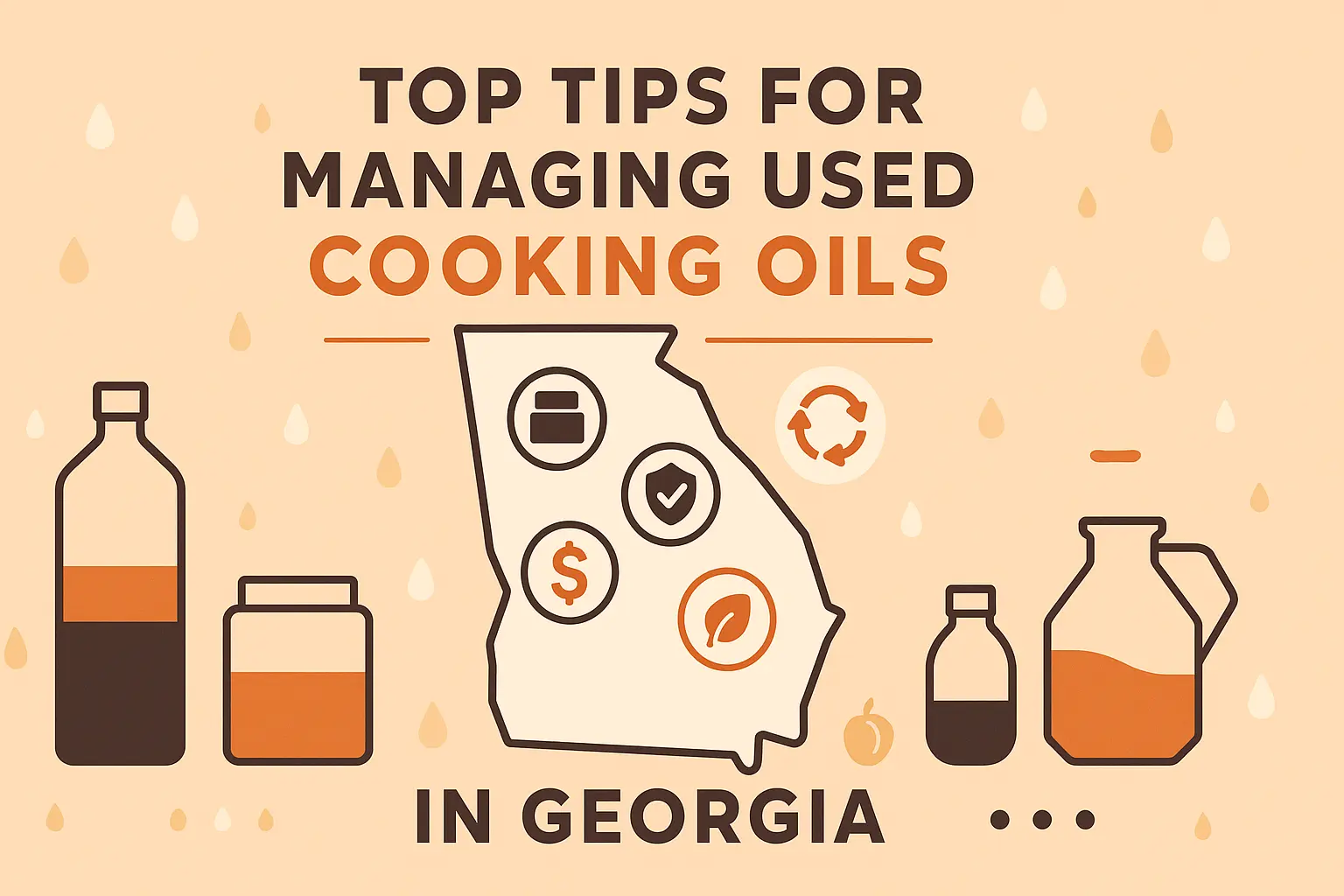
Top Tips for Managing Used Cooking Oils in Georgia
Not sure what to do with used cooking oils? This guide will explain how to reuse, recycle, and dispose of them safely and responsibly. Key Takeaways What Are Used Cooking Oils? Used cooking oils are essentially oils that have been employed in the cooking or frying of food, losing their pristine quality in the process.…
·
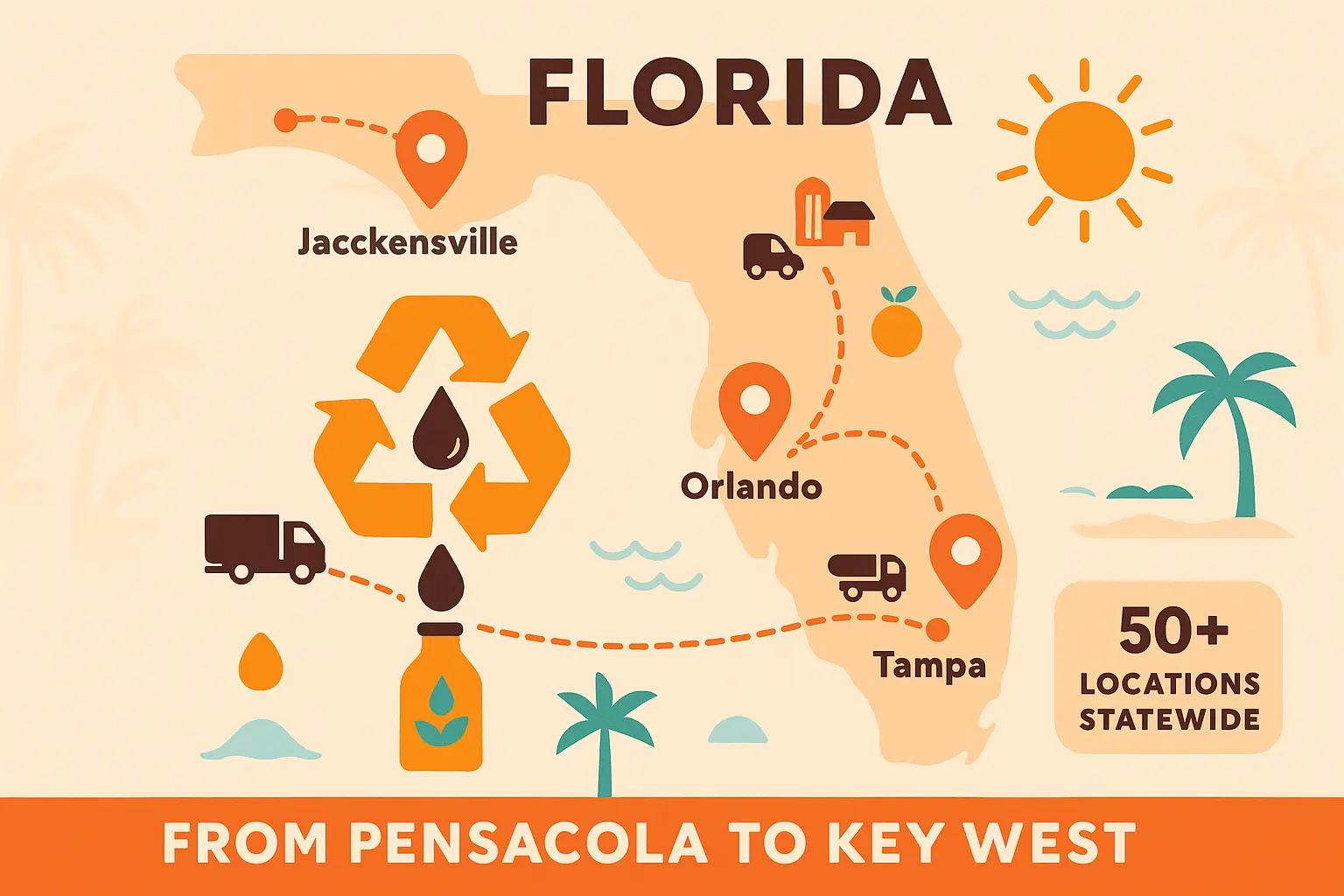
Where to Recycle Used Cooking Oil in Florida
This guide helps you dispose of it properly to avoid plumbing issues and protect the environment. We cover local drop-off locations, commercial recycling options, and home disposal tips.
·
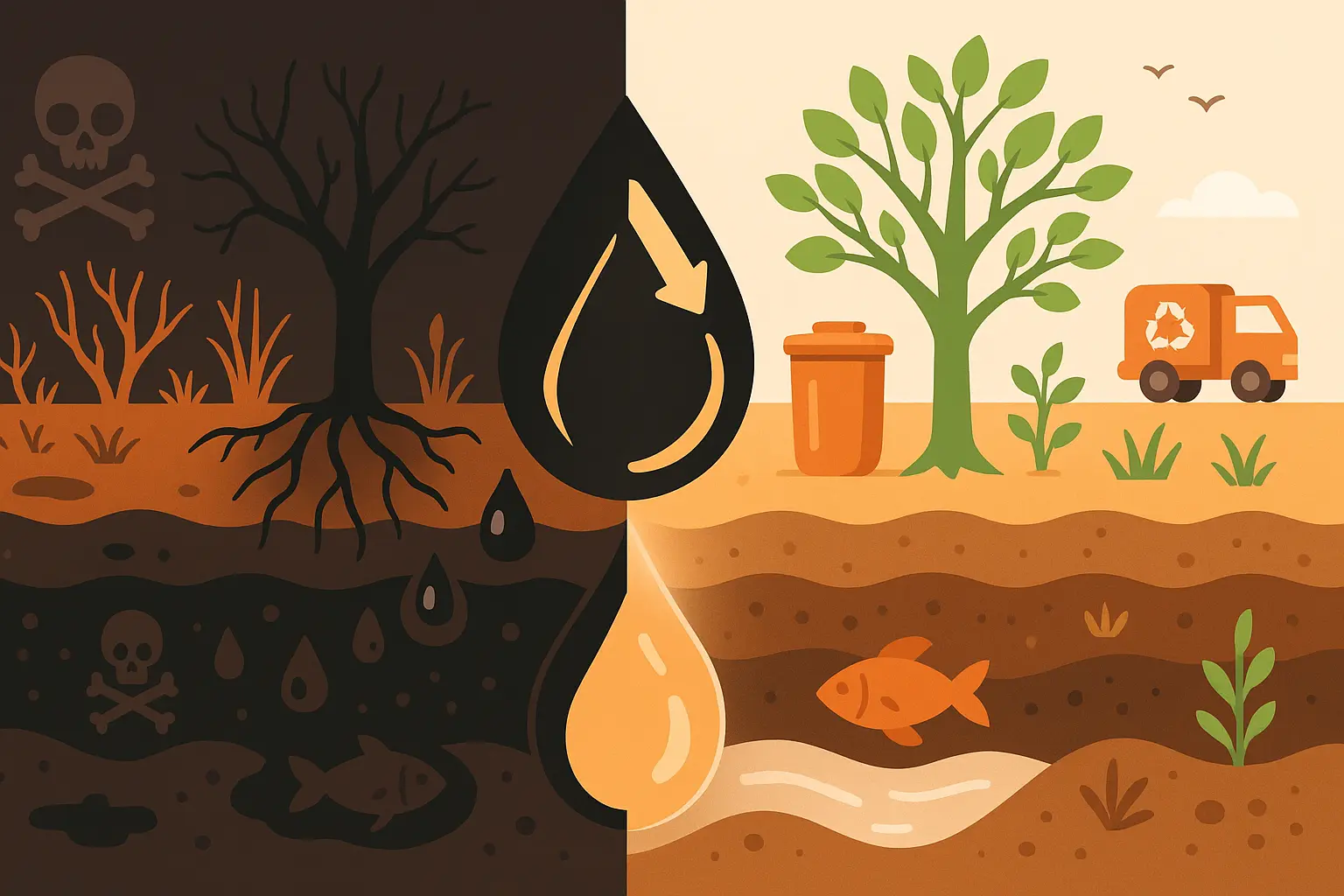
The Dangers of Dumping Cooking Oil in the Ground & How to Dispose Properly
Dumping cooking oil in the ground can cause serious environmental harm. It contaminates the soil, disrupts plant growth, and pollutes water sources. Instead of risking these damages, this article provides safe and eco-friendly disposal methods.
·
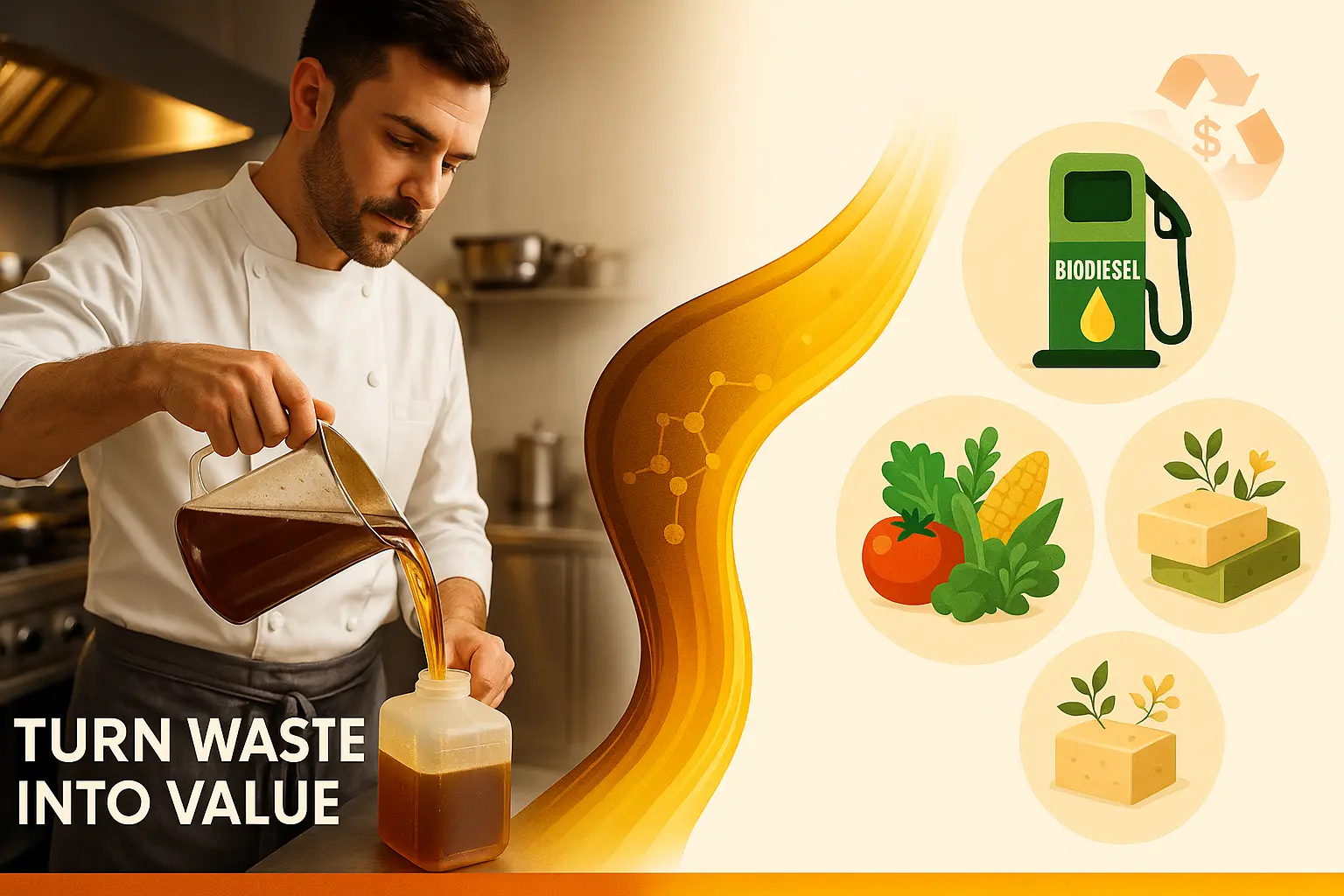
Can Cooking Oil Be Recycled? Here’s What You Need to Know
Yes, cooking oil can be recycled. In fact, the question “can cooking oil be recycled?” is essential to understanding its benefits. Recycling used cooking oil can turn it into biodiesel, animal feed, and soap, reducing waste, saving money, and helping the environment. This article covers why recycling cooking oil is beneficial, how you can recycle…
·
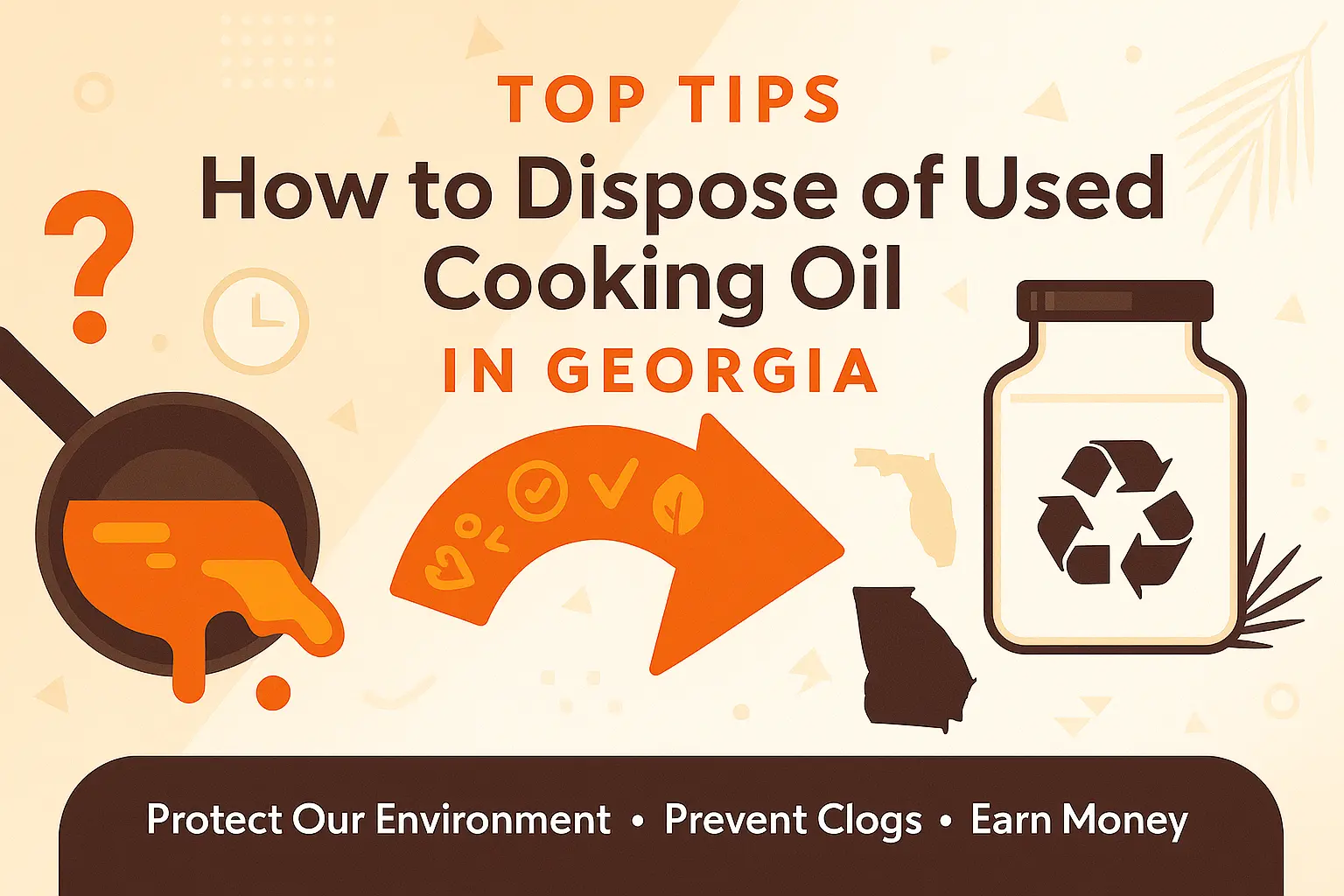
Best Practices for How to Dispose of Cooking Oil in Georgia
Looking to learn how to dispose of cooking oil in Georgia? This guide covers legal and effective methods for both residents and businesses. Knowing the right way to handle used cooking oil prevents plumbing issues and supports environmental sustainability. Read on to learn the best practices and available resources in Georgia. Key Takeaways Importance of…
·
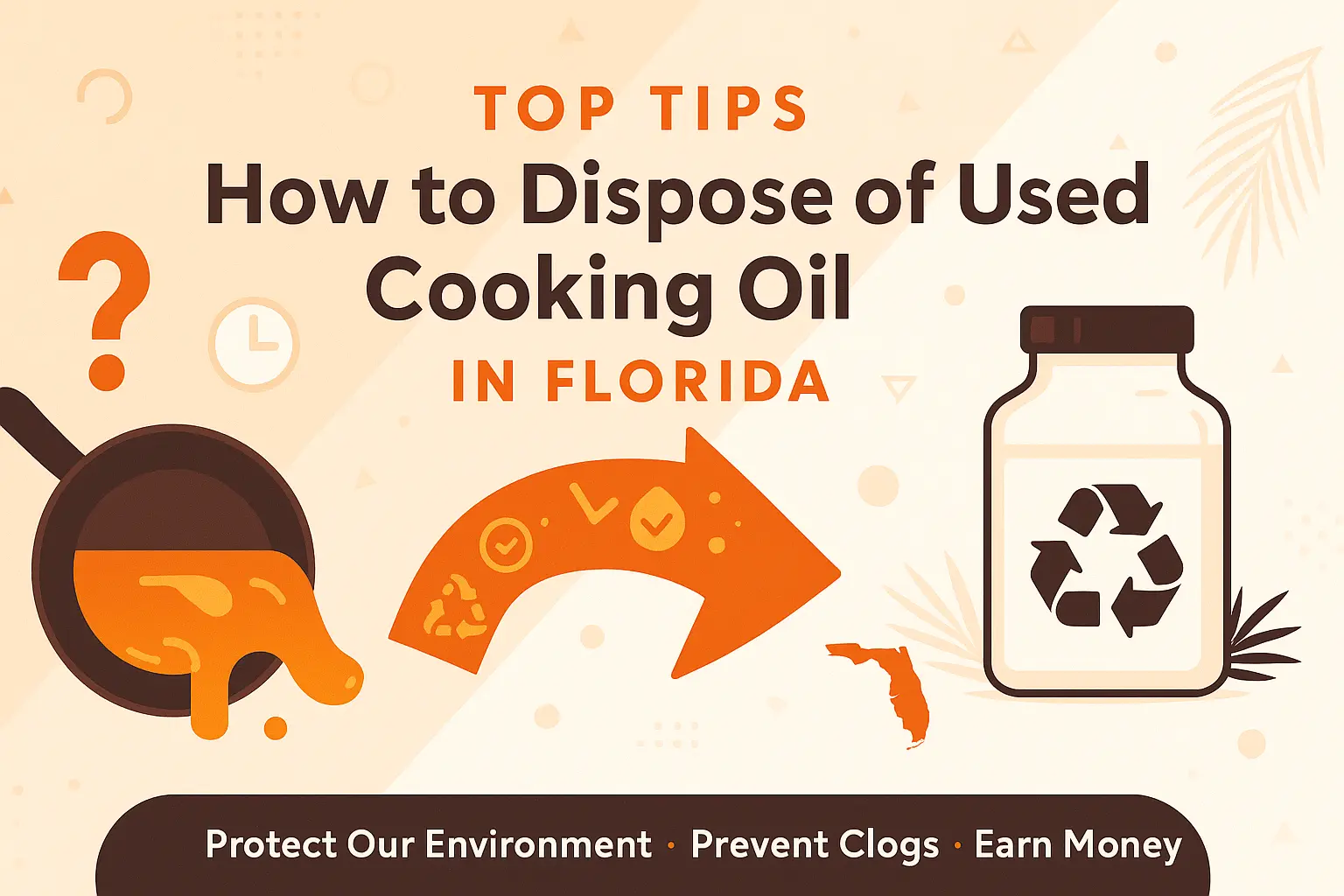
Top Tips for How to Dispose of Used Cooking Oil in Florida
Need to know how to dispose of used cooking oil in Florida? Proper disposal is crucial to prevent environmental damage and plumbing problems. This guide will explain easy and eco-friendly ways to get rid of your cooking oil, including local recycling options. Key Takeaways Proper Disposal Methods for Used Cooking Oil First, allow your used…
·
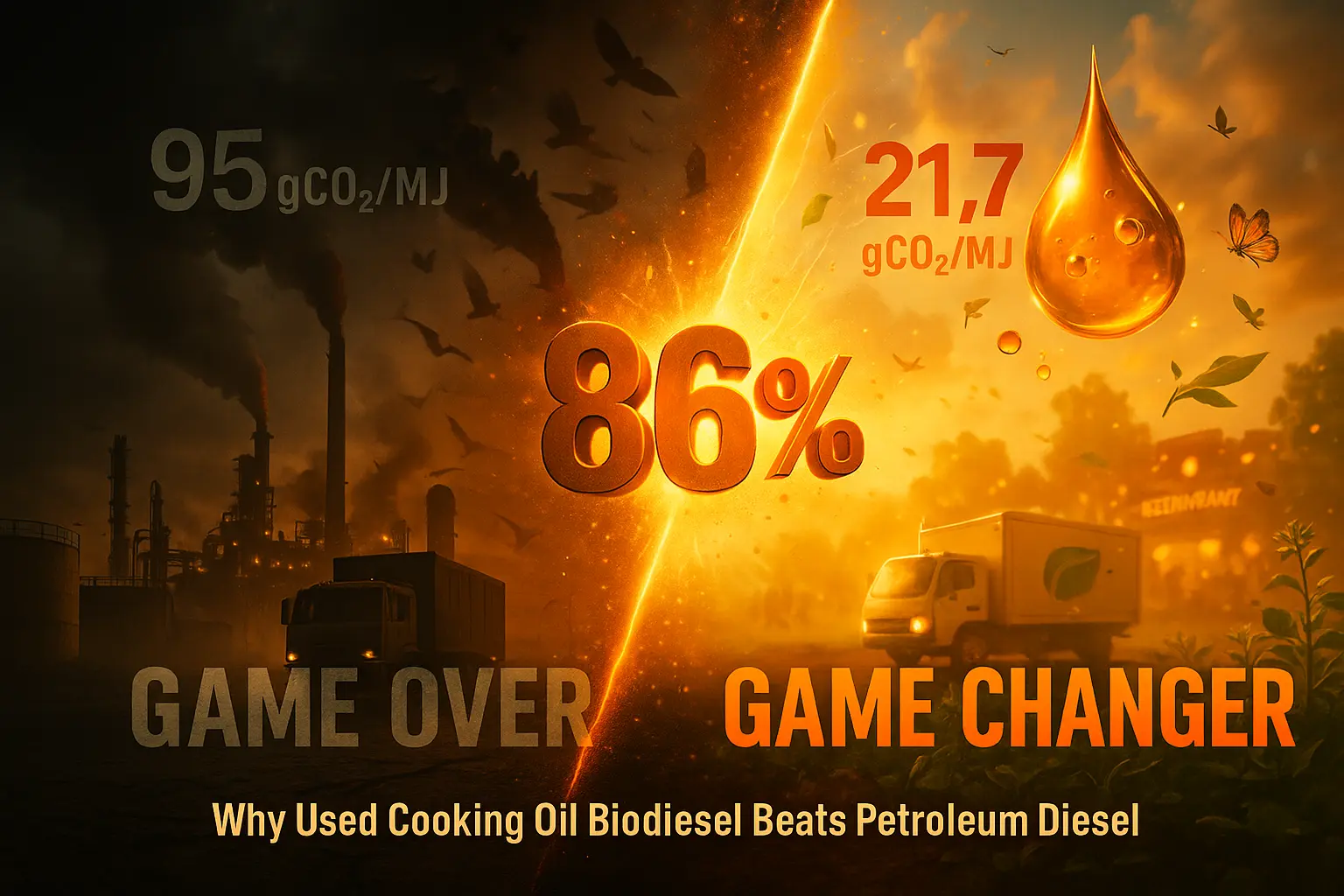
Why Used Cooking Oil Biodiesel Beats Petroleum Diesel by 86%
After 10 years collecting restaurant oil, I found out UCO biodiesel reduces emissions by 86% compared to petroleum diesel. Here’s how the $11.8 billion market can transform your restaurant’s waste.
·

What Improper Grease Disposal Really Costs Your Restaurant
Improper grease disposal drains cash fast: fines, emergency plumbing, shutdown days, customer backlash. Learn real-world cost ranges, prevention tactics, and profit-saving container solutions every restaurant owner should implement right away.
·
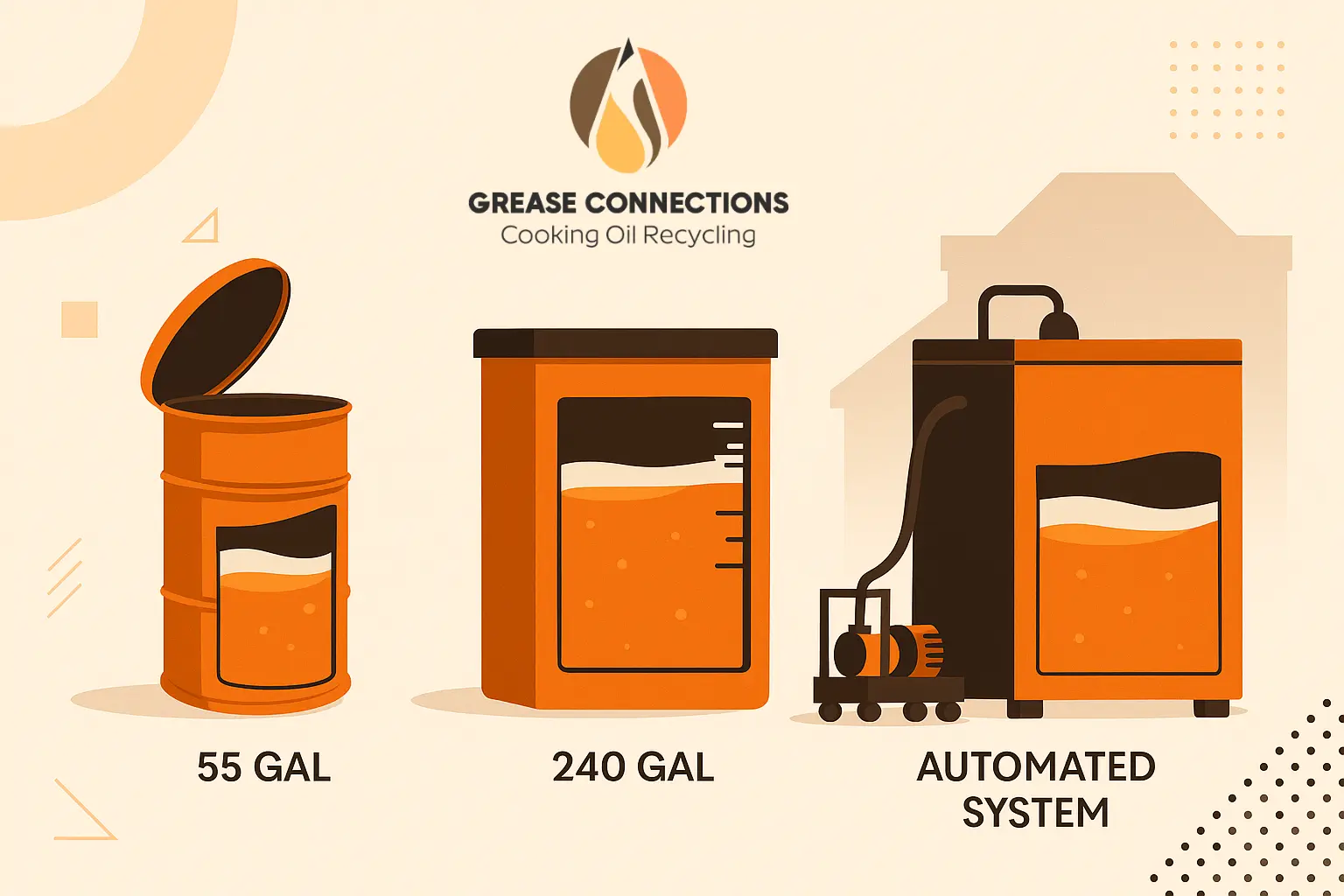
How to Choose the Right Used Cooking Oil Storage System for Your Restaurant
A comprehensive guide to selecting between 55-gallon, 240-gallon, and automated systems based on your specific needs
·

Why “Free” Used Cooking Oil Collection Can Cost More Than Paid Services
A comprehensive guide to understanding used cooking oil collection pricing models and choosing the option that actually saves your restaurant money.
·

Small Restaurant Owner’s Complete Guide to Used Cooking Oil Recycling: Maximizing Profits in Limited Space
Your fryer grease isn’t waste—it’s a hidden revenue stream worth 30–45 ¢ a gallon. Swap the trash barrel for a 45-gallon wall-mount caddy, stop paying disposal fees, and start cashing rebate checks within three months.
·
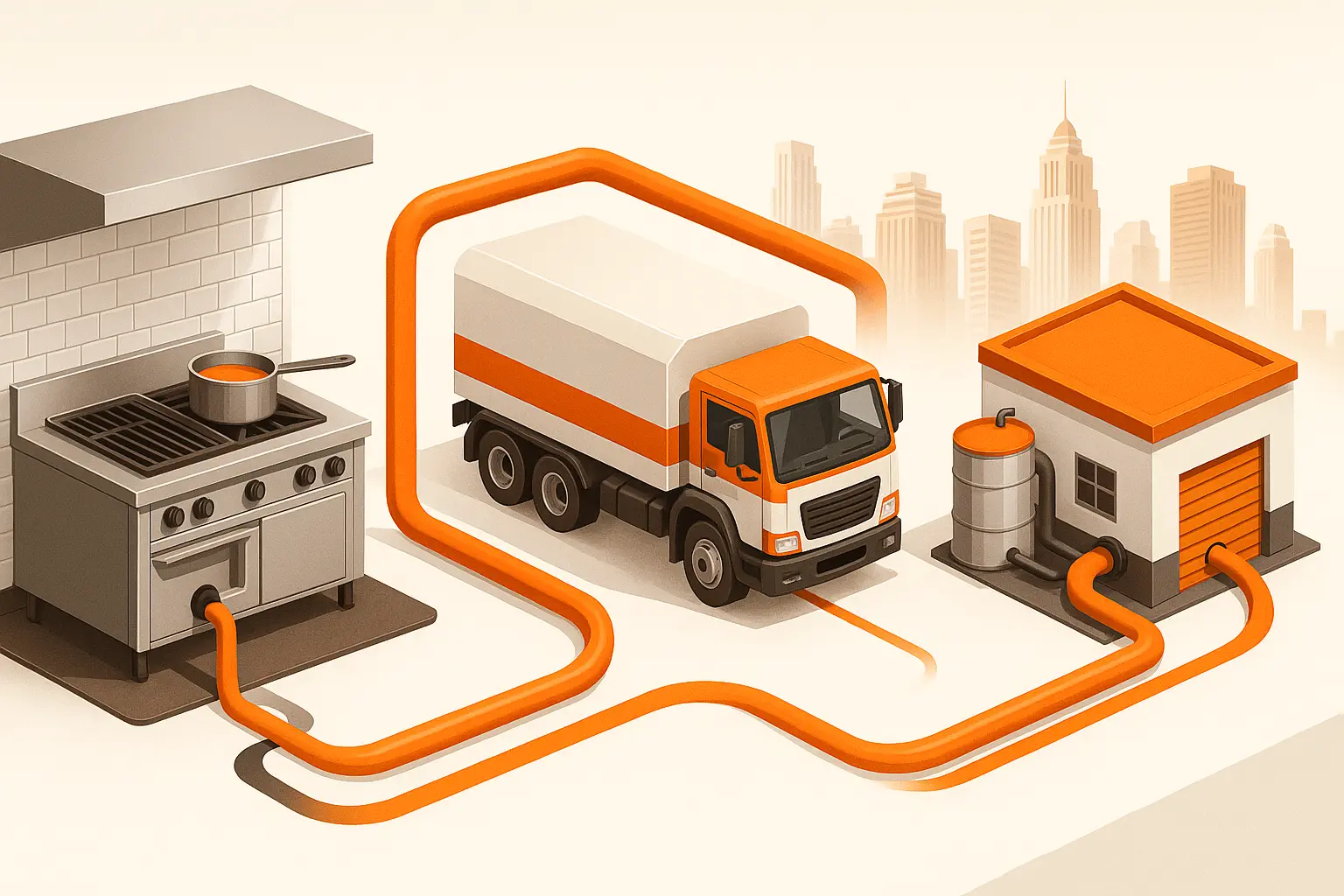
Miami’s New Grease Waste Hauler Law (SB 1110): What It Means for Your Kitchen
Florida’s SB 1110 has outlawed “pump‑and‑return.” Haulers must empty your interceptor, deliver every gallon to a licensed plant, and leave a three‑part manifest. Miami kitchens must store those manifests for 12 months and hire DERM‑licensed haulers or face fines up to $5,000.
·
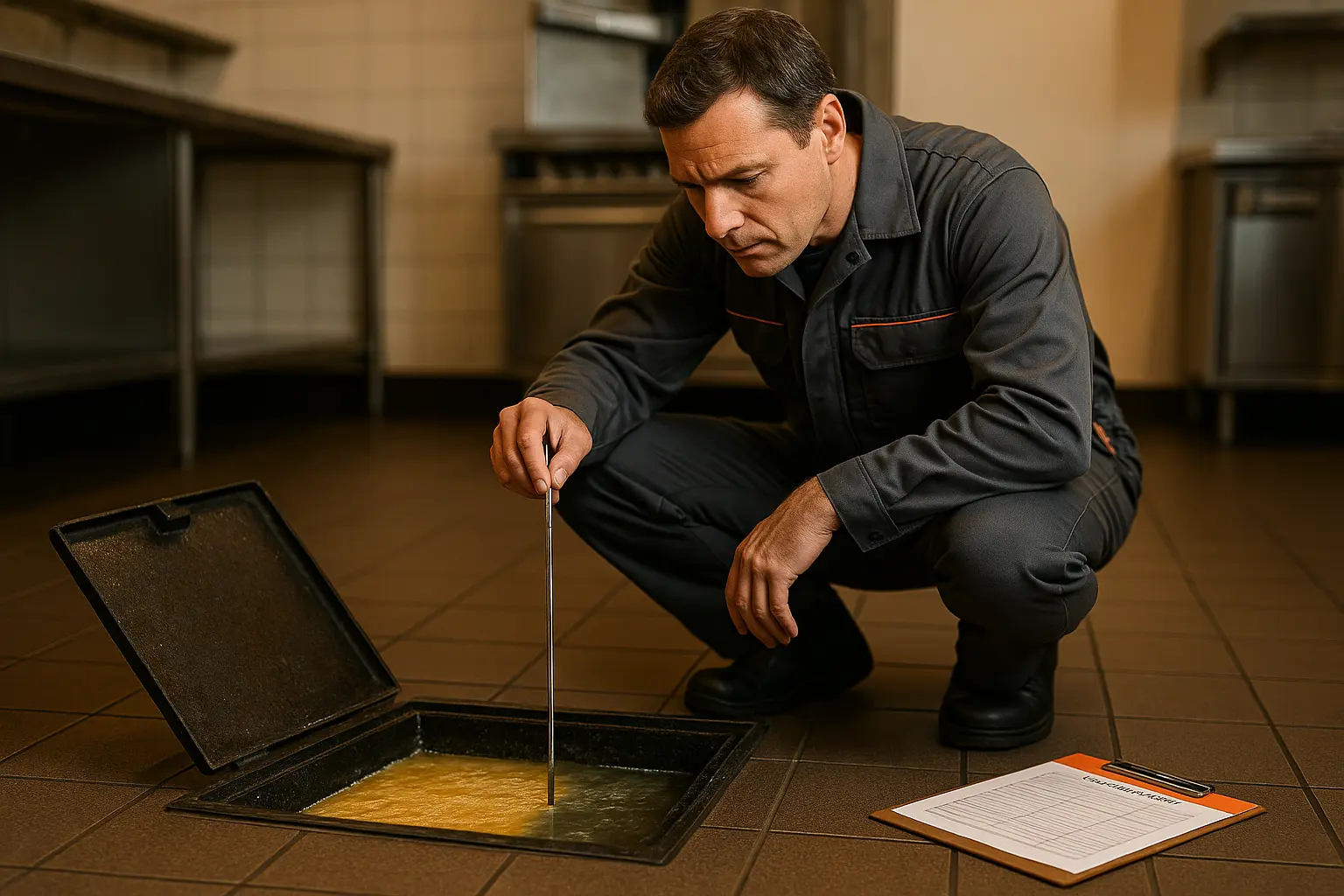
Georgia Grease Ordinance: All County Fees & Deadlines
Every Georgia food‑service facility needs an annual wastewater‑discharge permit, sized grease traps, and documented FOG maintenance. Applications open Jan 1, late after Mar 31 costs 25 % extra, and failed inspections trigger a $100 re‑inspection fee per trap.
·
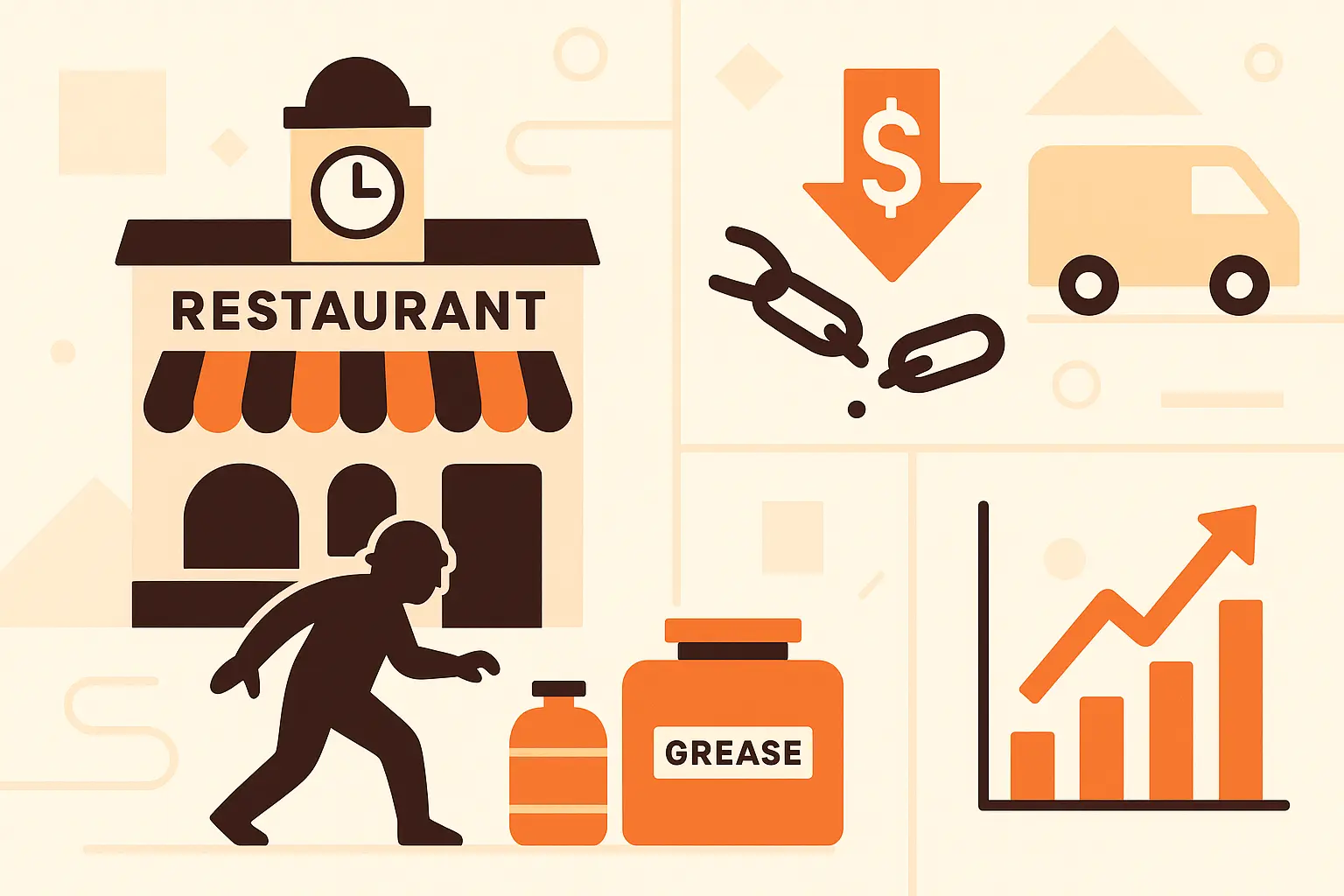
Essential Strategies to Prevent Used Oil Theft at Restaurants
Cooking oil thieves siphon unsecured grease at night, then sell it for unregulated biodiesel production. Lockable tanks, motion‑sensor lighting, HD security cameras, trained staff, and a tight pickup schedule prevent theft and keep your waste oil earning legal rebates.
·
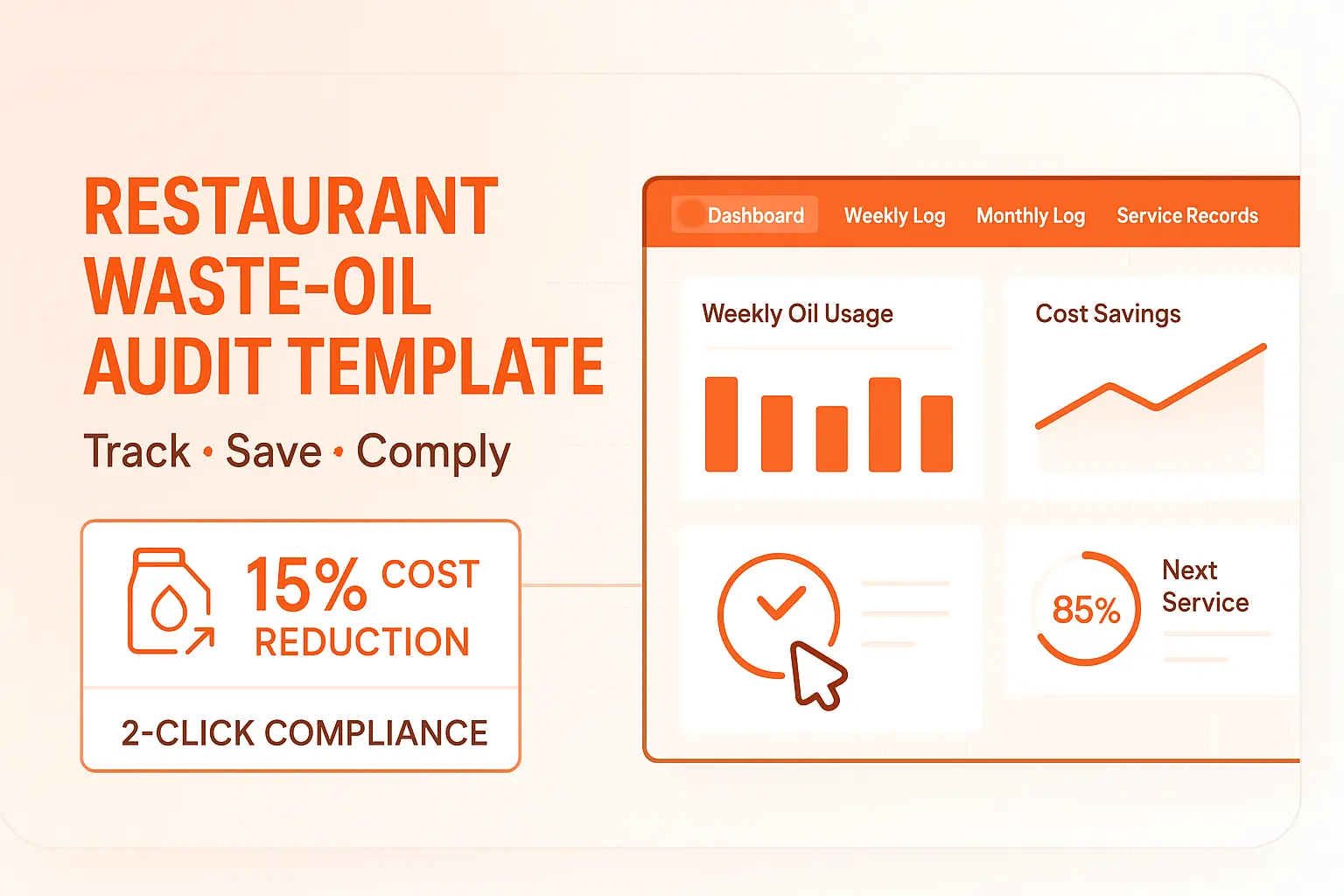
Editable Restaurant Waste Oil Audit Template (Google Sheet)
A simple excel sheet audit tracks every gallon of fryer oil from delivery to recycling, revealing leak points, rebate gaps, and compliance blind spots saving the average kitchen 12–20 % in oil costs.
·

2025 Georgia FOG Compliance: Checklist, Penalties, Recycling
Georgia requires every food establishment to trap, track, and recycle fats, oils, and grease. Follow this five‑step checklist to meet code, satisfy county inspectors, and dodge costly violations.
·

Is Used Cooking‑Oil Hazardous Waste? Federal vs State Rules, Penalties & Recycling
Used cooking oil isn’t hazardous waste under federal RCRA rules unless mixed with solvents, corrosives, or heavy‑metal sludge. Fryer oil can be legally stored, hauled, and recycled under usual used‑oil regulations.
·
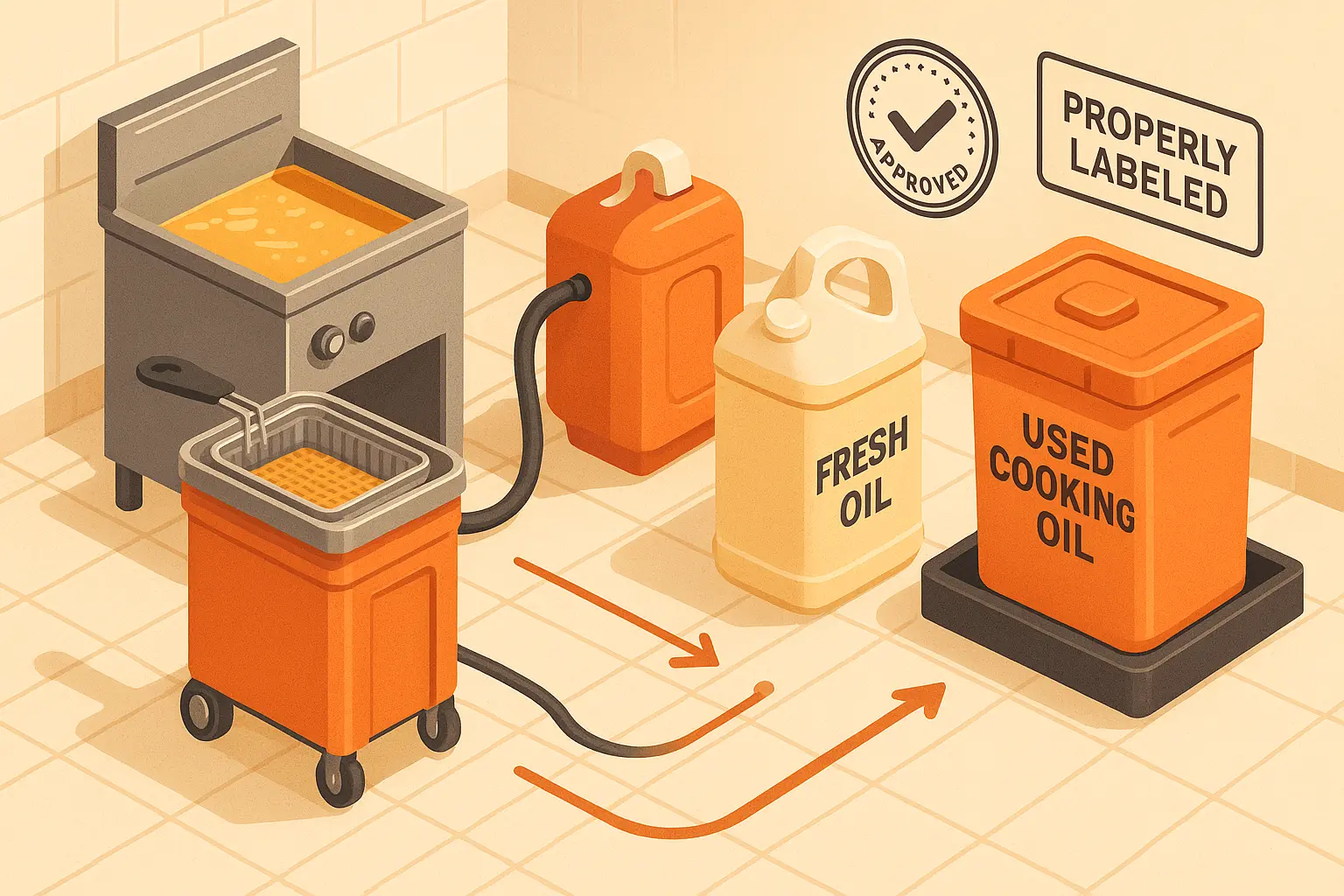
Fryer Oil Storage That Passes Inspection for Restaurants
Proper fryer oil storage protects food quality, prevents plumbing issues, and ensures inspection compliance. This guide covers safe handling, disposal, legal requirements, and how to turn used oil into profit.
·

The Rise of Grease Theft and the “Midnight Pumping” Economy
A gallon of leftover cooking oil now fetches three dollars, fueling a black-market “midnight pumping” trade that drains eight percent of U.S. supply and costs legitimate renderers forty million yearly.
·
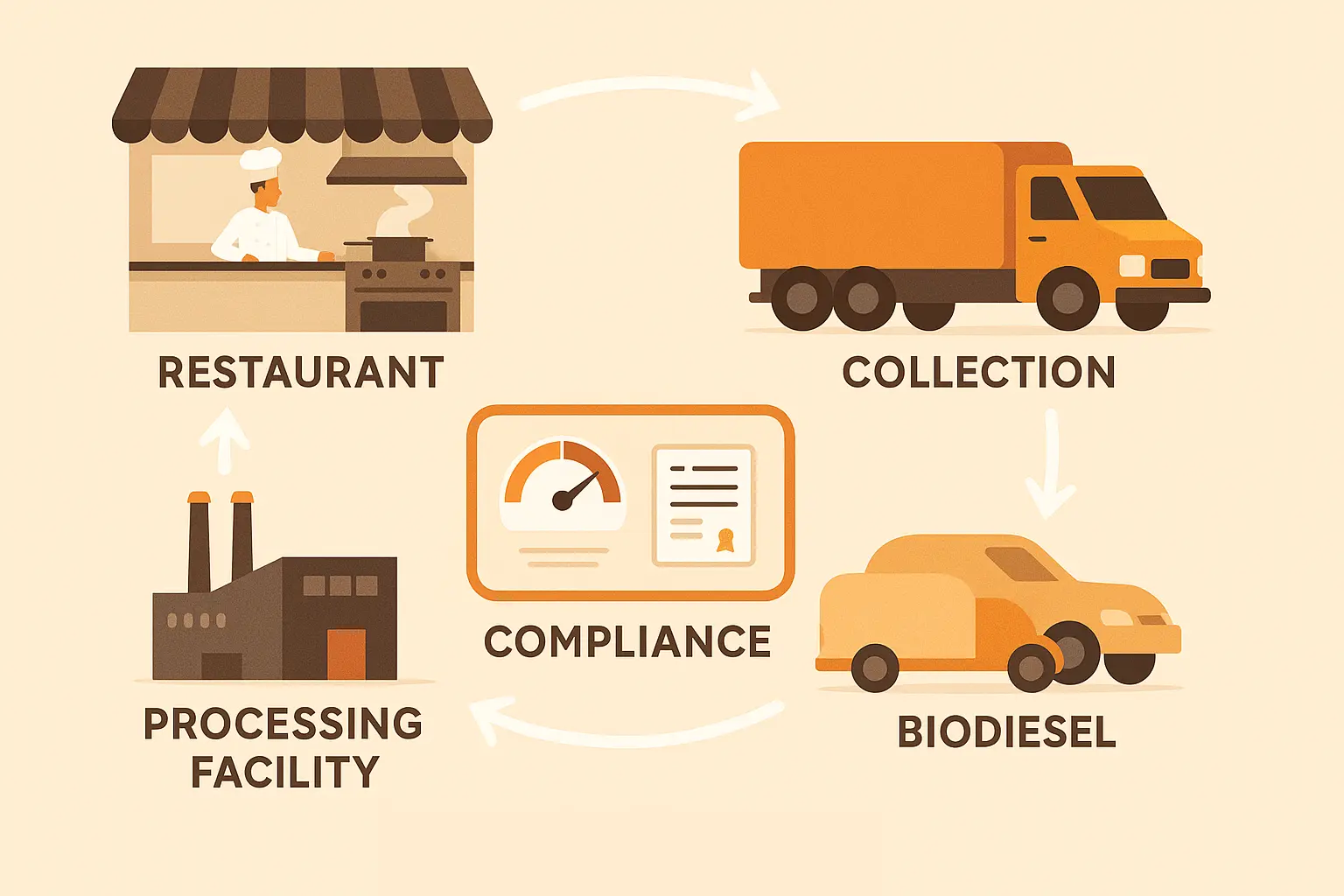
Ultimate Checklist: Opening a New Restaurant Without Triggering FOG Fines
Pump grease traps at one-quarter full, clean exhaust ducts regularly, swap filters weekly, recycle waste cooking oil via licensed haulers, keep records, and train staff steps in preventing sewer backups, fires, fines.
·

Insurance Perks: Carriers that Reward Documented Grease Recycling
Timely used cooking oil pickups, routine grease-trap cleaning, and scheduled filter exchanges cut fire risk, protect sewer lines, satisfy inspectors, and unlock insurance discounts; turning kitchen waste into biodiesel while lowering premiums, preventing costly repairs, and keeping operations smooth.
·

County Fines for Illegal Grease Dumping Across South Florida
South Florida kitchens must pump grease traps routinely, hire licensed haulers, and keep signed service manifests. Skipping steps—like untracked hauling or dumping oil into drains—brings fines from $250 to $5,000, cleanup costs, and possible license suspensions. Proper disposal protects waterways, avoids sewer blockages, and preserves vital tourism dollars.
·
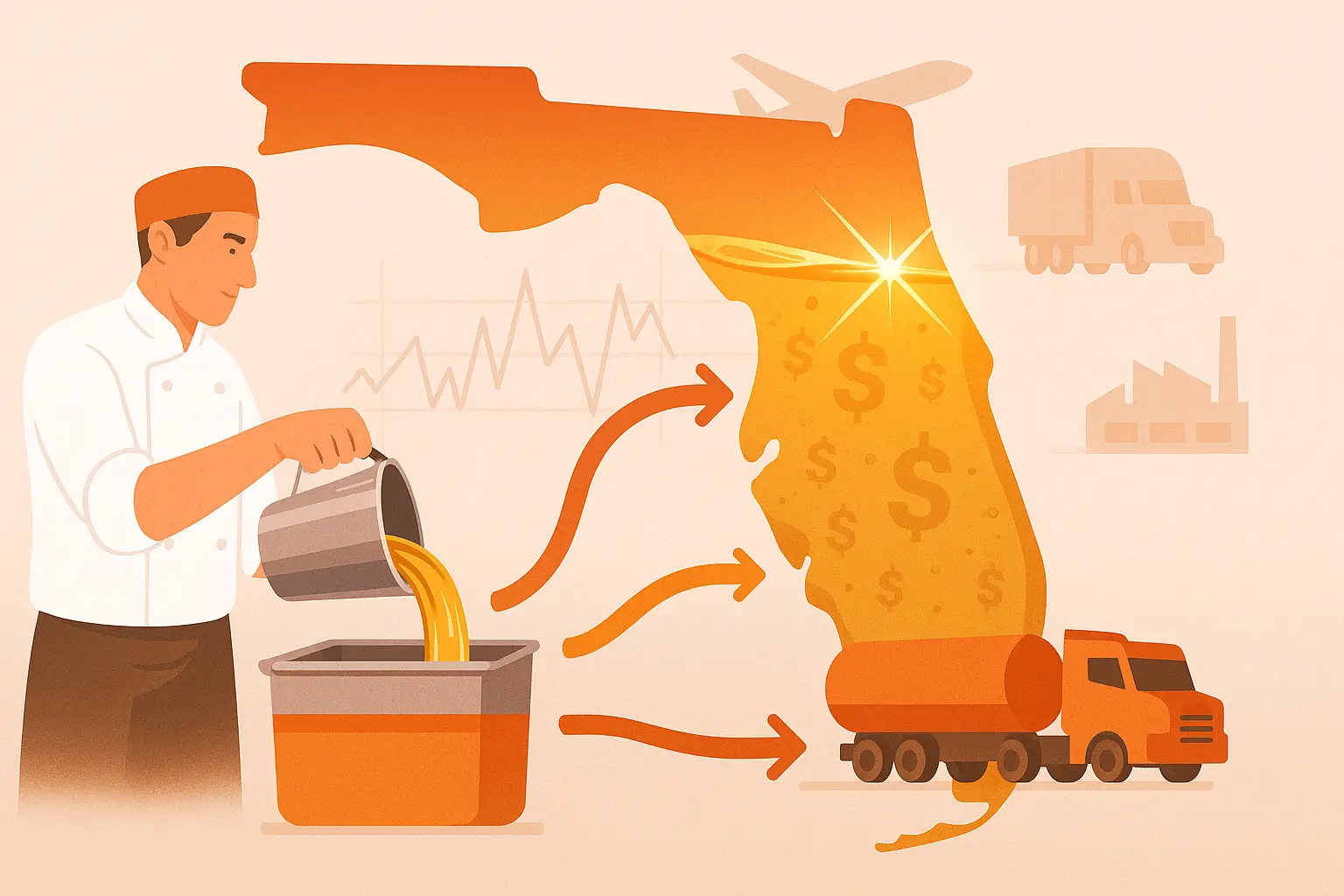
Yellow Grease Commodity Pricing and Why It Fluctuates
Prices go up or down when restaurants dump more or less oil, refineries look for cheaper supplies, government fuel credits change, storms slow shipping, crops raise or cut soy prices, dirty oil loses value, and thieves steal some grease too.
·
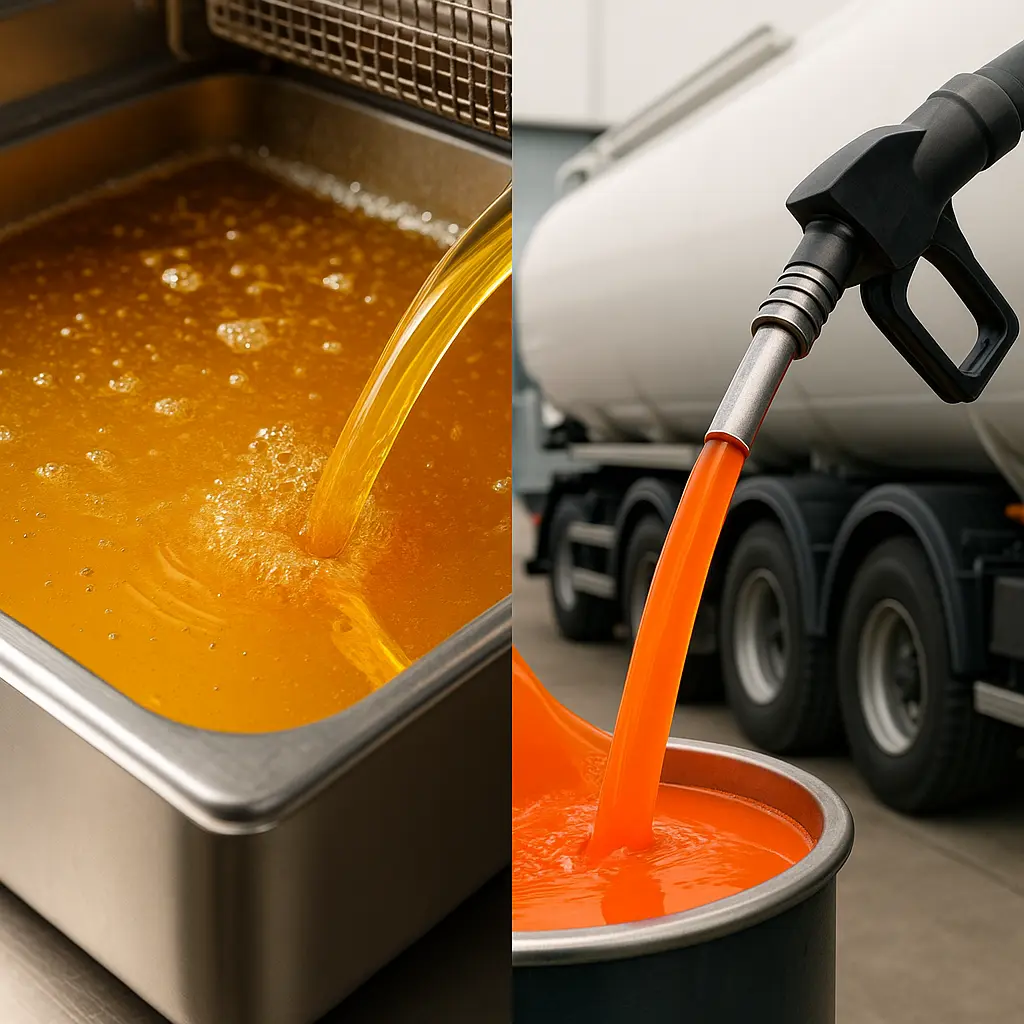
How Grease Travels from Fryer to Biodiesel Refinery
Cooking oil recycling follows one clean loop: used cooking oil drains from the fryer into a sealed tank, haulers collect it, the plant filters the oil and runs a quick transesterification step with methanol and catalyst, and the result is low‑carbon biodiesel fuel. That fuel goes straight into trucks in place of petroleum diesel, trimming…
·
